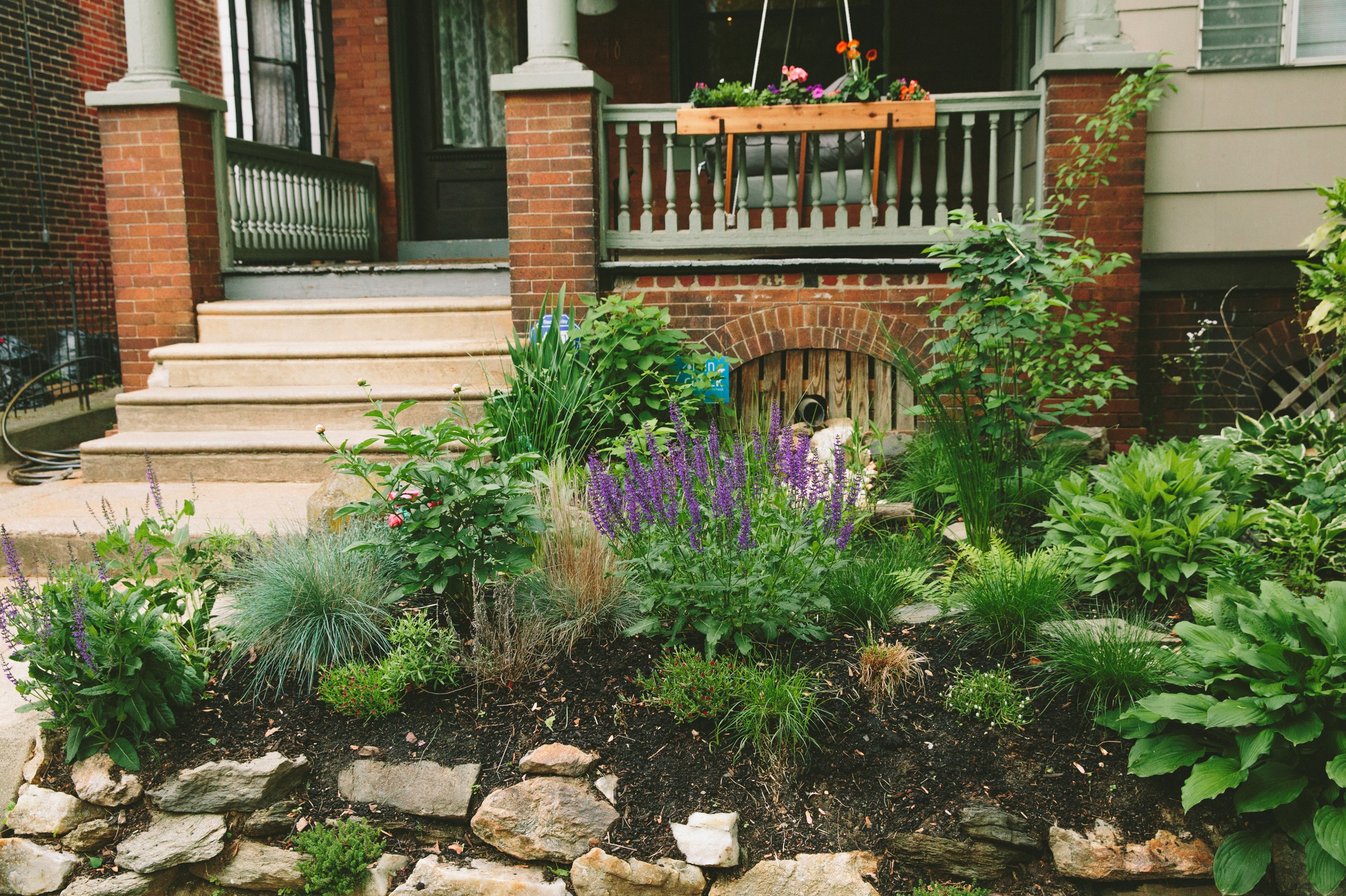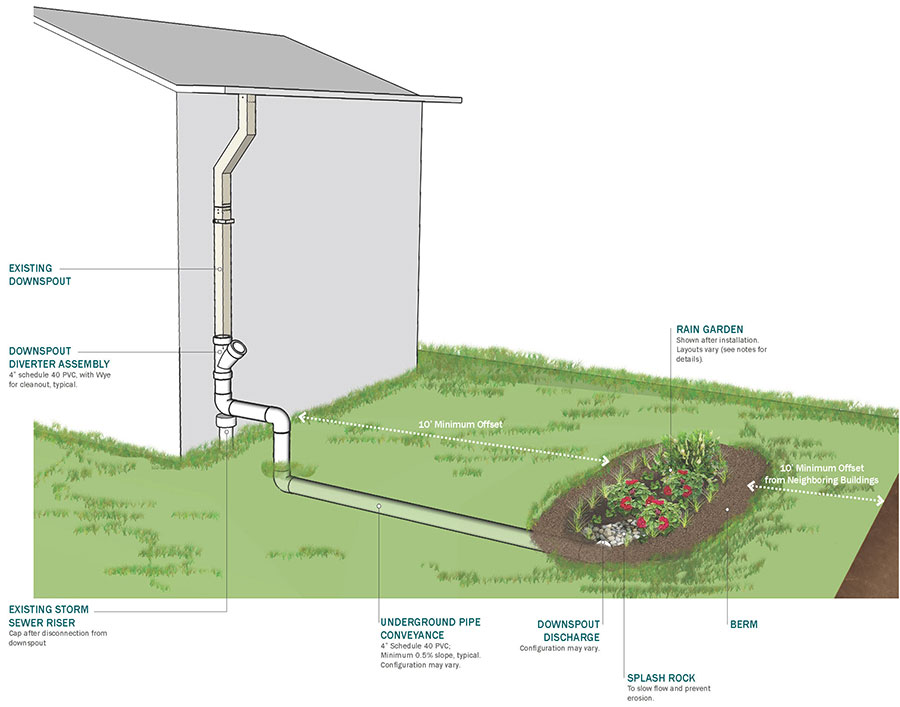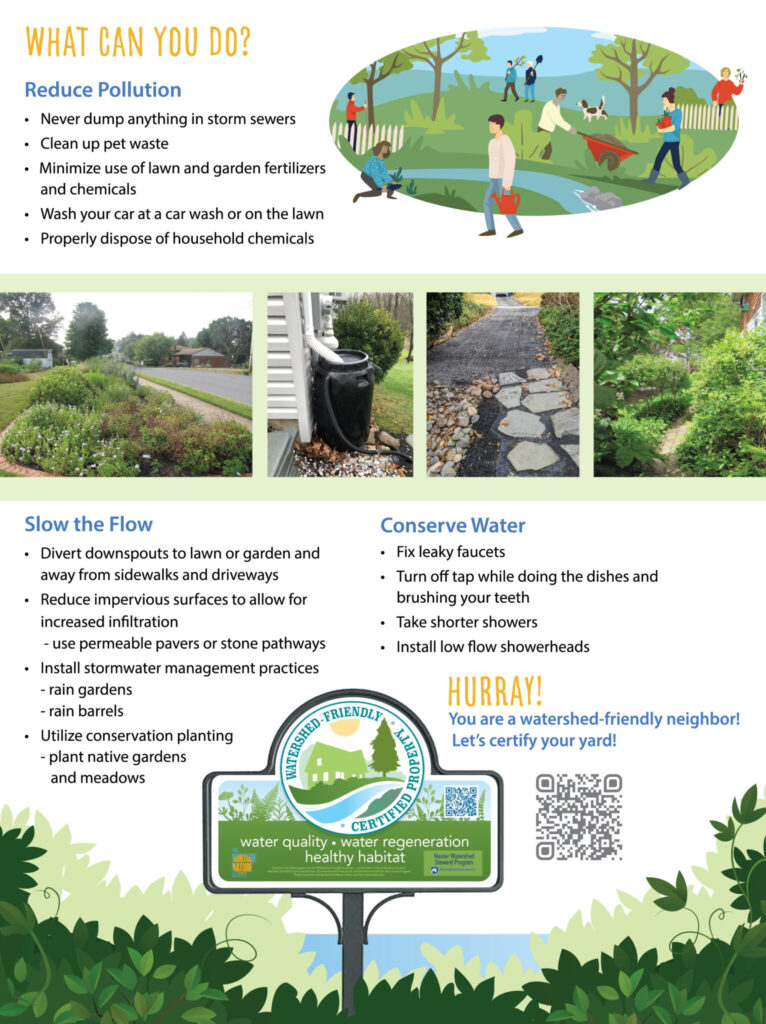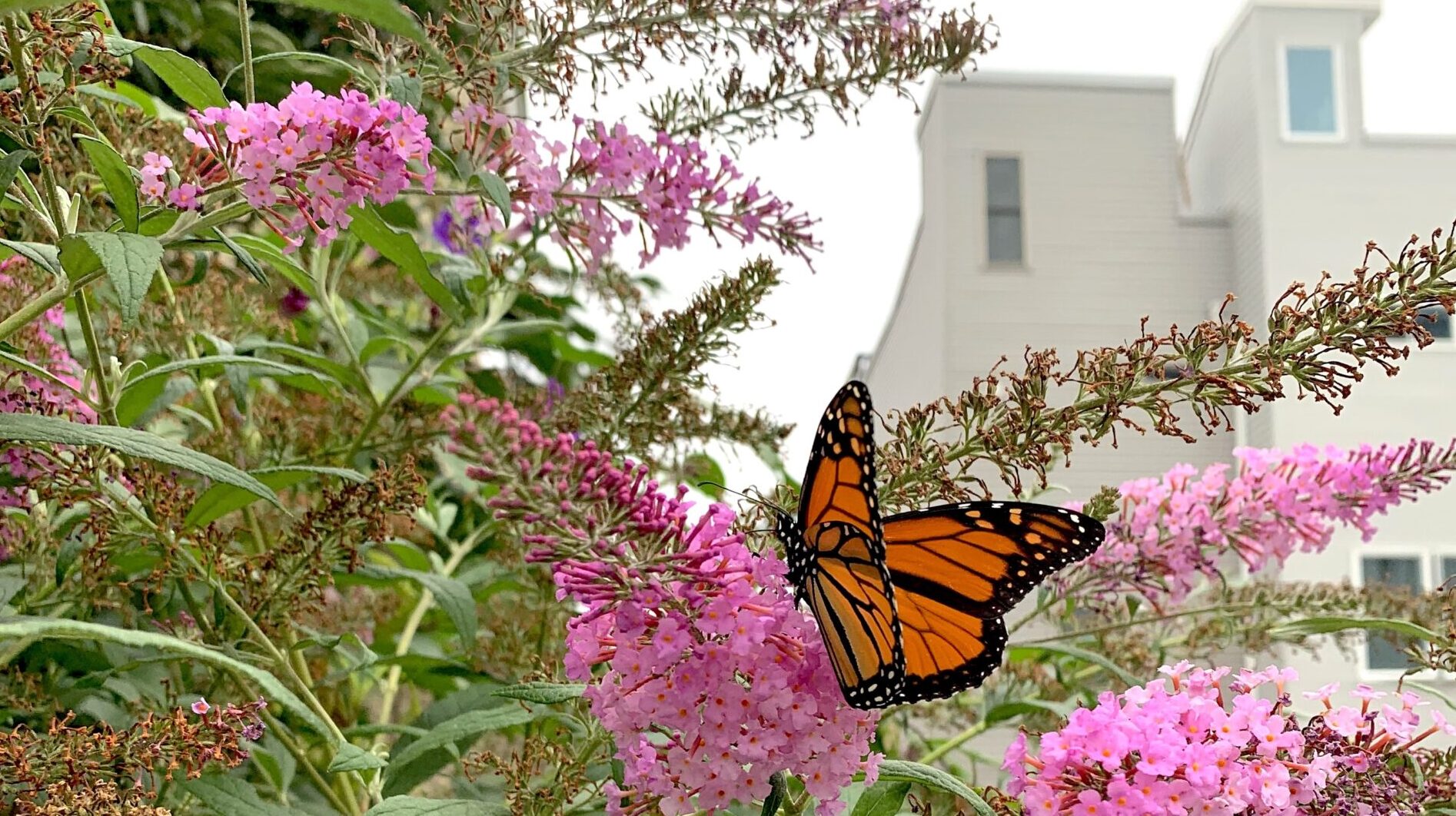sustainability
Managing Stormwater & Protecting Our Watershed

The Philadelphia Water Department (PWD) and Pennsylvania Horticultural Society have joined forces to create the Rain Check Program to help homeowners and renters manage stormwater runoff. Unlike water absorbed by the soil, stormwater runoff carries heavy metals, petroleum products, pathogens, and other pollutants into our rivers and oceans. Billions of gallons of stormwater and diluted sewage flow into local waterways each year. This is the biggest threat to the health of Philadelphia’s waterways and to our homes. Sidewalks buckle, roofs leak, basements grow mold.
In 2011, PWD created Green City, Clean Waters, a 25-year plan to reduce the volume of stormwater using green infrastructure and traditional infrastructure improvements. As a result, Philadelphia is poised to meet pollution reduction goals by 2036. These goals include improving air quality, saving energy, reducing the heat island effect in the inner city, creating green jobs, increasing property values, boosting the local economy, and restoring our waterways. But they can’t do it alone. They need your help!
Start by taking a Stormwater Quiz to determine the right stormwater tool for you. The Rain Check Program will share the cost of all the below options:
- Free rain barrels, 55-gallon food-grade plastic barrels, that capture stormwater runoff from the roof. PWD provides professional installation including spigots, gaskets, winter caps, and a downspout diverter. You can use the stored water for your non-edible plants or outdoor cleaning.
- Downspout planters are designed to absorb and filter stormwater before it enters the sewer system. All planters come with complementary, low-maintenance plants that are native, adaptive, and drought-tolerant. These plants will come back every spring and have deep, extensive root systems that allow them to absorb and filter stormwater runoff.
- Rain gardens absorb water from your roof, allowing it to drain directly into the soil.
- Rain Check will contribute $15 per square foot for permeable pavers, up to a maximum of $1,500 to replace impervious surfaces like concrete or asphalt. With a variety of colors and styles available, this can make a big visual improvement to your property and manage stormwater at the same time.
To be eligible to participate in the program and receive cost benefits, you’ll first need to attend a virtual Rain Check workshop. The workshops are typically hosted twice a month. To be notified when the next session will be, sign up on their website.

Apply for Watershed Certification
The watershed certification process recognizes residents and building managers, including renters, who employ best practices in managing water resources where they live in their everyday lives, including lifestyle choices that minimize water quality impacts. It applies to anyone who manages a private or shared outdoor space measuring less than 1/4 acre or manages a patio or rooftop garden. This includes container plantings on a sidewalk, roof, or patio, or maintain community green spaces that reduce stormwater runoff.
To certify your property, navigate to the online application and select the appropriate category. There is no cost for the application or certificate. However, successful applicants will receive a free window/door decal or purchase the Watershed-Friendly Property sign.

Other Ways to Protect our Waterways
- Wash cars using nontoxic soaps to prevent dirty water from running into your nearest stream.
- Maintain clean, clear storm drains by removing litter or debris that may cause a blockage.
- Avoid flushing or pouring fats, oils, greases, wipes, or toxic substances down storm drains.
- Use native plants in your yard or container plantings.
- Mulch flower beds so they retain water better.
- Use a broom instead of cleaning patios and driveways solely with water.
- Use water from a rain barrel to water flower beds and potted plants.
- Limit lawn watering. Grasses are adapted to periodic drying, and they will green up again once it rains.
- Turning off faucets when not actively in use, such as when brushing teeth.
- Capture water for reuse while waiting for shower or bath water to warm up.
- Control invasive species that impair ecosystem health.
As a homeowner, investor, developer or renter you can make a difference. For more information on financial incentives and grants that the Philadelphia Water Department offers to property owners, project managers, and developers to increase stormwater management on their property visit their site here. They also have a helpful Home Stormwater Guide that offers simple DIYs and educational resources for anyone interested in protecting our waterways.
We hope you will join us and do your part in restoring and protecting Philadelphia’s precious watershed.







